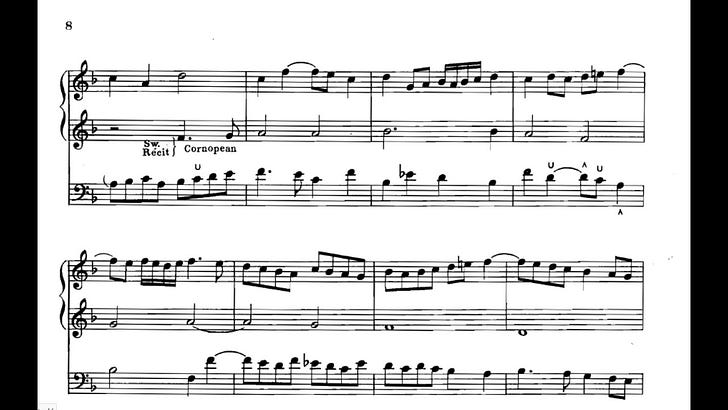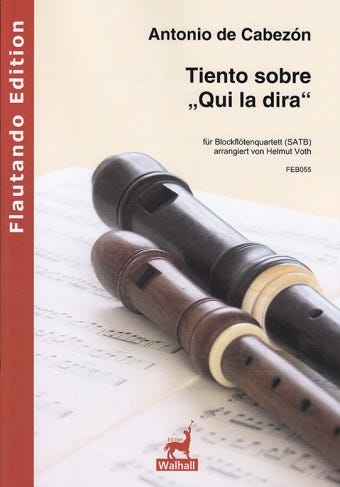Hola. This is Barbara, your curator of cultural news from the Spanish-speaking world. It’s been quite some time that you got news from me. Due to health issues with my eyes I had to pause my newsletter and now I am back. I still cannot read and write for a long time, but each day I feel a little better. This is why I have chosen a musical recommendation this week for you: Spanish composer and organist Antonio de Cabezón.
Working for the Spanish court
The so-called «Spanish Bach» is none other than Antonio de Cabezón (1510-1566), born in Castrillo Mota de Judíos (Burgos). Despite turning blind at a young age, he studied organ in Palencia. In 1526, he started to work for the empress Isabel de Avis, wife of Carlos V. After Isabel’s death in 1539, he became the music teacher of her children. Her son King Felipe II made him his court organist. Cabezón accompanied Felipe on his travels around Europe. He even went to London on the occasion of the monarch's marriage to Mary Tudor. He is considered one of the most distinguished players of keyboard instruments of his time.
Musical legacy
Thanks to his son, a bulk of his work is preserved and we can still play it or listen to it. Even though today his name is only known to music nerds, he was one of the most important musicians of Renaissance Spain. As the German radio station BR Klassik points out, Cabezón's «tientos», contrapuntal pieces, were famous throughout Europe.
With their elaborate polyphonic movement, they triggered a development that would experience its highest flowering in the baroque toccatas and fantasias of the following two centuries. Cabezón's «diferencias», variation movements on popular melodies and dances, were also groundbreaking in their artistry. In general, Cabezón was one of the earliest composers to use the theme-and-variations form.
Calling Antonio de Cabezón the «Spanish Bach» might sound like an ahistorical comparison. In the English Wikipedia, Juan Batista José Cabanilles is referrred to as «Spanish Bach» because he is the most famous baroque composer of his country. The contribution does not name a source though. Others name other composers, e.g. Tomás Luis de Victoria, when they want to stress the importance of the composer for theSpain’s musical development. Whatever might be an accurate epithet, Cabezón’s work is worth a listen in its own right.
This is all for today. Enjoy the music 🎼 and let me know what you think and feel about it.
I will be back in about two weeks time.



